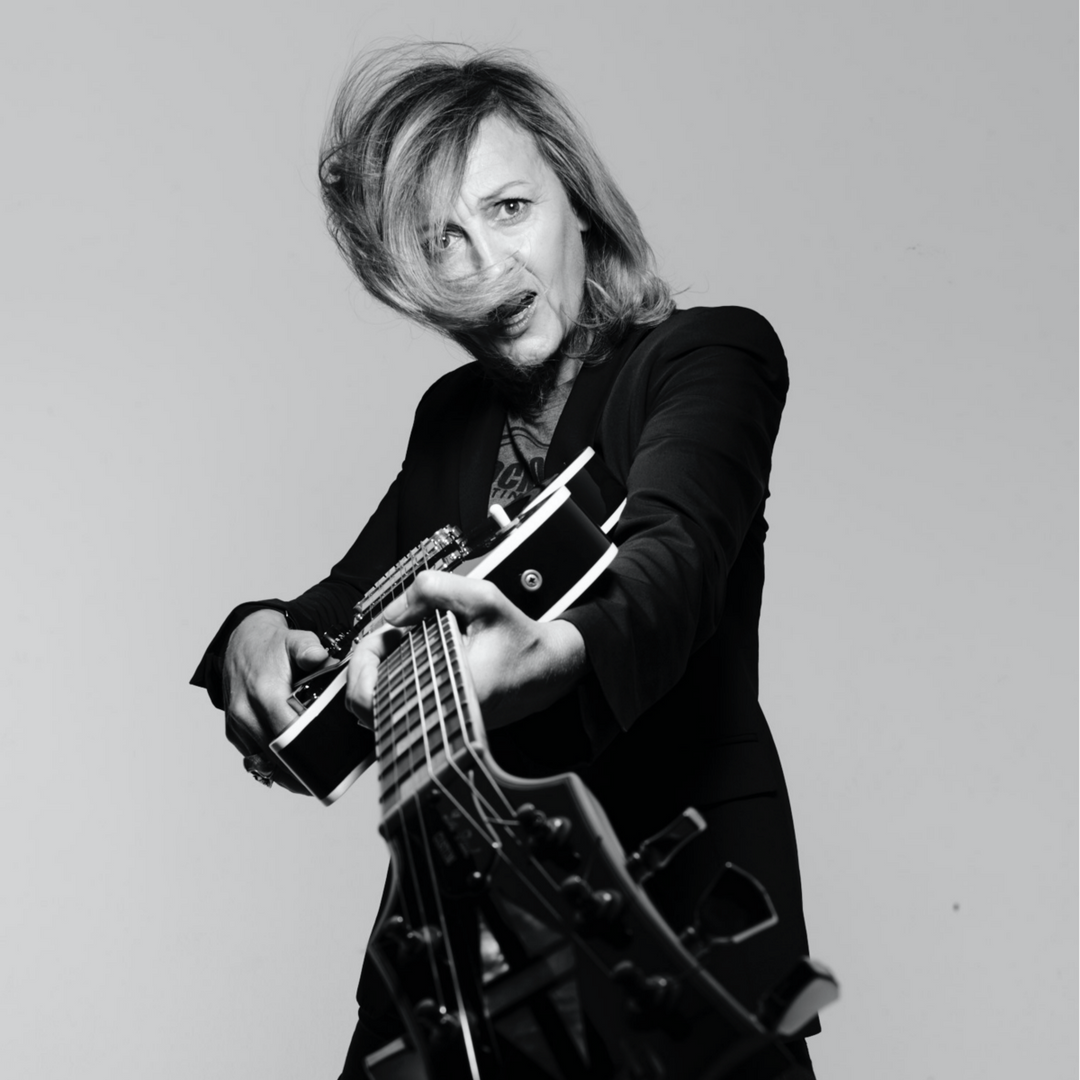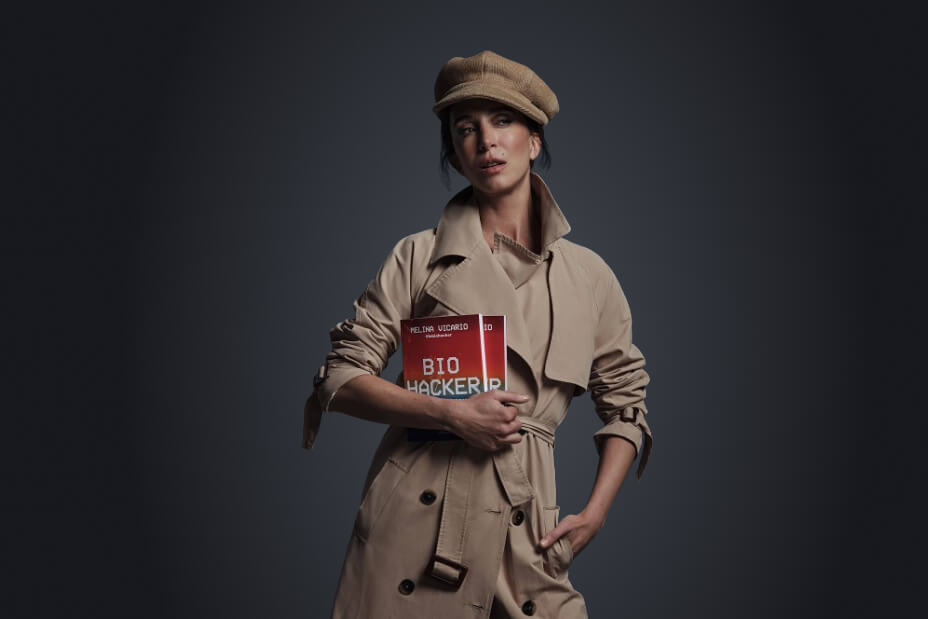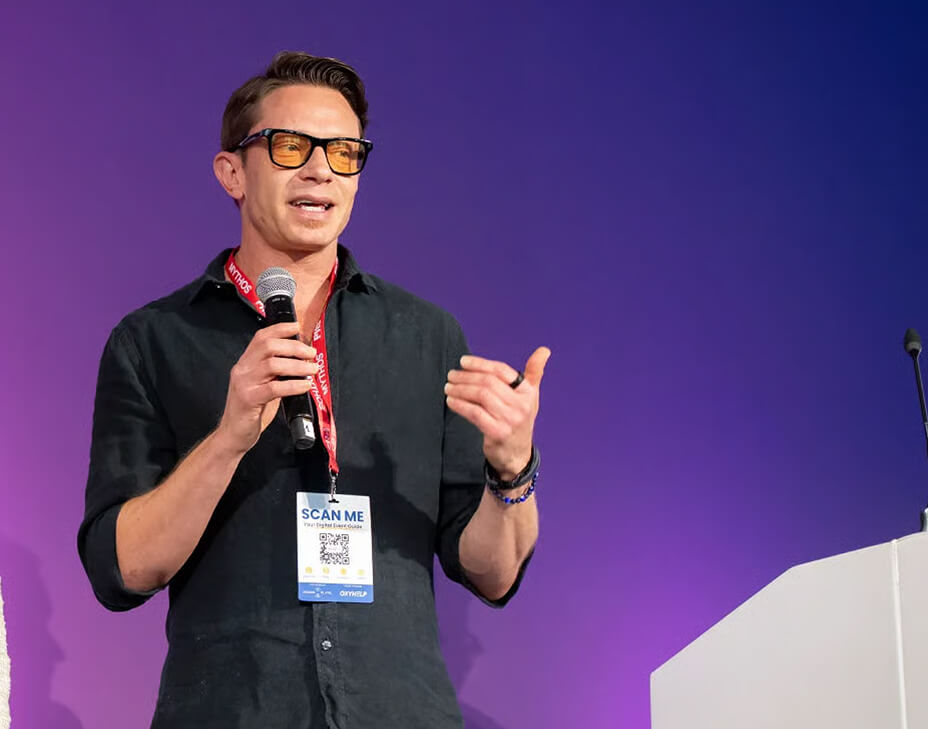Can Rock and Roll Save Your Soul? We're Not Sure, but It Can Certainly Keep You Young!
Can music be used as a biohack? Absolutely! Find out how to create a simple daily routine that will benefit your longevity, while also bringing you joy.
We are so excited to introduce you to Dr Julia Jones a.k.a. Dr Rock. Julia is a neuroscientist, biohacker, DJ and the founder of Neuron Wellness, the company that helps you receive accurate information on the best wellness techniques and tools in order to better your health.
We talked about the power of music, her exciting project GlycanAge is participating in and so much more.
You’re running an interesting project with our CEO Nina. Can you explain it to our audience?
Basically, I’m based in a village in England and I'm writing a health trilogy. The first one was called The Music Diet: The rock and roll route to a healthier, longer life that came out in 2019 and showed how music can drive wellness results.
The follow-up book came out this year, it’s called Neurone Smart Wellness Made Easy, and it shows the whole programme of a biohacker. So it’s not just focused on the music and the benefits it can have on your brain, but there are a lot of other natural hacks like using daylight, intermittent fasting and breathing techniques.
The third book is coming out next year and it’s called Auto-Tuned. In it, I’m documenting how people are using that smart wellness programme to try and boost their biology. Basically to try and better someone’s health by using smart techniques.
It’s nothing revolutionary, just getting up early in the morning and getting the benefits from early daylight, nailing your sleep schedule, cold showers, wild swimming, those kinds of things and of course music.
What we’re doing in this anti-ageing project is measuring participants’ biological ages before and after to show how they can achieve a substantial result. In some cases, people experience results in quite a short space of time just by learning how their body works.
It’s important to understand your biology because I think most people don’t listen to their bodies. This is why it’s difficult for them to take control of their life.
So it's about learning the basic principles of how the brain and the body systems work, learning the really easy bio hacks that can make a big difference, and then finally, using smart wellness technology or tests that can provide data that show you the state of your biology. In the end, you can then see how little habits like your daily routines are either positively or negatively impacting your body.
That is the project, we are putting people through the smart wellness programme and we're measuring them before and after to see if they can achieve a positive result. We've already put a few people through it and it works, you know, because of our ancient biology.
Natural foods and natural eating habits in combination with natural daylight and all those things always have an impact. We're working with you guys and using the GlycanAge test to see what the current state of their inflammation levels are and their biological age, and then retesting next year to see if they managed to improve it.
What kind of results do you hope to achieve with your project?
Interestingly, the greatest result happens almost immediately, because when they get the GlycanAge result, it kind of puts a mark in the sand that makes them realise that they have an influence on their own health.
We all know that we need to have a regular sleep schedule, work out and eat healthily, but sometimes we need that moment of realization and go Wow the small changes I’m making are bettering my health.
Our participants learn how different bits of biology work and they suddenly feel empowered because they understand why they need to go outside for a little bit of early daylight. And that knowledge is going to have a long-term effect because they're changing their daily routines and over time they become the new normal. They're all telling their friends, it’s great to see them excited about the changes.
Your work must feel really rewarding.
Yes, it really does. When I first started talking to people about these practices, which I was shown 30 years ago by the US Navy when I was a sport and exercise science student, most people were not aware of the power of extended exhales and training your parasympathetic nervous system just through breath.
I’ve also tapped into the power of gratitude and the power of music. Music is amazing. Did you know that learning an instrument has proven to be one of the most effective ways of building new brain pathways and keeping brain health and cognitive function active throughout life?
A lot of this is not common knowledge because we've drilled into people that it's all about diet and fitness. And, you know, five decades of diet and fitness-focused approaches have not produced any healthy nations. So it's time to start looking at that.
I spent a decade in the sport, deeply working with Olympic athletes. I still work with elite sports performance professionals, but I came across neuroscience and focused more on that. Interestingly enough, people don't know how the brain works. They don't know these basic things that are taught to the elite military and the elite athletes but aren't taught in schools. So there's a massive knowledge gap of people thinking that they have to join a gym to improve their health, which simply isn't true.
I feel like a lot of people lose their motivation because they go to the gym for a month and they don't see any results.
Yeah, what results are they trying to get in the gym? You know, there's just so much miscommunication that I've got from clients. I tell my clients to immediately cancel their gym membership and spend that money on getting a gut health test, getting a GlycanAge test, getting some smart wireless technology or whatever else that they can start measuring their data.
That's how you change your wellness because fitness and wellness are not the same things. If you want to improve your fitness and go to a 10k race or you know, triathlon or improve your strengths or the contours of your muscle definition, then you need a gym membership.
But if you want to avoid illness and have a long, healthy life, then you actually need wellness and wellness isn't made in the gym. Wellness is made in your daily habits, tiny things that you do every single day.
It's going to be a colossal battle to change people's perceptions around this. Because when I tell people to just go outside and get some early daylight, they're like - How can that possibly help me?
You need to receive that natural blue light in the morning to start your day. So in lockdown, people haven't been going out, and they haven’t been getting any daylight.
I hear this a lot. People like to go to the gym and use machines that count how many calories they lose, and they use apps that encourage them to work out with some sort of reward system.
I'm being really controversial around this because I'm telling people not to do these things, but the truth is my clients are time-poor. They do not have enough minutes in the day as it is, and they're definitely not going to spend 2 hours going to the gym.
By the time they've driven to the gym, checked in, gone to the locker room, put the bag in the locker, gone upstairs, and done a warmup that they don't even need, they could’ve already been done with their home workout.

Music is a big part of your process. Can you share a bit about how music helps your clients?
Music has been my favourite bio-hack for 30 years. That's how I got the nickname Doctor Rock. It’s very powerful to use music to slow down brain waves, regulate your breathing, boost your confidence and improve the quality of your sleep.
Learning an instrument and the effect of singing have positive effects on the autonomic nervous system and lung function, as well as the parasympathetic nervous system. Music is so versatile in the way that it can impact our biology.
What songs are on your playlist right now?
Well, it depends on what I’m trying to achieve. My favourite song at the moment is All Night by Beyonce.
I love that you mentioned that song. I had such a weird experience with it. I was travelling and had awful menstrual cramps and no painkillers then all of a sudden this song came up on my iPod and I kept listening to it and half an hour later I felt true pain relief.
Sounds like you were doing it right. If you were auto-synchronising your breath to it, you figured out the secret. Because our brains synchronise with the sounds that we hear. Many studies now have shown the pain relief effects of music, and in 2019, about six months after my Music Diet book came out The World Health Organisation published a paper showcasing the health benefits of music for the first time.
Music stimulates multiple regions of the brain and it also triggers dopamine release and serotonin. It changes brain chemistry.
And you know, it's powerful stuff and it dates back tens of thousands of years. The oldest instrument that we found so far is a flute that's about 40000 years old, and a flute is quite a complicated instrument to make. So it can be said that our ancestors were using body percussion, singing, chanting and dancing way before 40000 years ago.
I absolutely love that. If we were to focus on recent history, what would you say encouraged you to get started on this journey of biohacking?
I was in California on a student exchange trip in 1991, so exactly 30 years ago. While I was there, I visited a US naval base and they showed me how they were using music, sound and breath work to control anxiety and high-pressure situations, as well as to boost motivation, and confidence, to improve training and sleep quality.
I graduated as a sports and exercise scientist and started working with athletes using the same principles. So now I use music, breath and visualisation to achieve certain states. And obviously, now there's a modern term for it - biohacking.
However, none of these things are new. We've got evidence that thousands of years ago, people were doing breathwork activities, meditation and gratitude practices. Unfortunately, it’s been overshadowed by the fitness and diet industry.
You know, there's a reason these industries haven't produced any healthy nations. Gyms are a great business model because everyone joins and pays the monthly payment and gyms get paid whether you go or not since no one gets around cancelling the subscription.
But the biohacks can be easily embedded into your daily routines, and that is the route to lifelong wellness.
What was your personal experience with GlycanAge like?
So I found GlycanAge when I was doing research for my second book. So I had already done a year of making dramatic changes to my daily routine. I had lost weight. I embedded intermittent fasting and I haven't been this way since I was in my 20s, and now I'm in my fifties. So that was a significant change.
My sleep improved dramatically. The number of fruits and vegetables that I was eating increased massively. My gut health scores improved dramatically. All stress levels were reduced and then I found GlycanAge. So I wish that I had done it at the beginning because I know that there would have been a significant difference just from how I feel so laser-sharp focus on everything now.
What would you say is the most challenging part of living healthier, especially while you have such a busy lifestyle?
The most difficult part is the fact that we live in a society that is designed to make us ill, especially around our food. I was one of the speakers at the Neuromarketing World Forum last year, and that neuromarketing sector is huge and they're using brain science in the supermarkets, in the packaging of the food, the words they use, the colours they use, the lighting they use and the positioning on the display to get you to buy.
We as humans are put in a really difficult environment when we’re subconsciously being influenced by so much of this stuff to buy bad food that is processed. I think that is the hardest part.
I say to everyone on my programme, cancel your gym membership and spend the money on tests and technology just to learn how your biology works and make these small changes to your daily habits.
Secondly, stop going to the supermarket. Set up a home delivery from the supermarket with tons of fruit and vegetables.
Can you share with us how they track your progress?
I do a gut test twice a year and I’ll start incorporating GlycanAge tests in my progress tracking. You know, when you think about it, I'm not trying to get younger because my goal is to get the maximum wellness benefit, but with a minimum effort. I just don't want to be ill.
I don't want to see my age-accelerating. So, for me, I've already reached my goals, and now it's just about monitoring it.
My last question for you is, for anyone who's just starting to get into David Bowie, which record would you recommend?
Well, Heroes is always a great pick. When I went to Berlin, I took a group of people to Hansa Studios where he recorded Heroes and we listened to the song in the control room through the monitor speakers and everyone burst into tears. We were all crying because it was so emotional since it sounded as if he was in the room. It was so realistic.
There’s this research in the Journal of Alzheimer's this month, looking at the power of listening to music from your youth. It’s been proven to be a very good exercise, reactivating a lot of neural pathways around the memories that were associated with that music.
Because certain songs take you back and you can almost feel yourself back in that room. It reactivates all the neurones that were involved in that original experience. So, yeah dust off the old records or just get the digital versions and practise your breathing to your favourite records from your youth.
And if anyone wants to get some more info, the website is neuronewellness.com.


